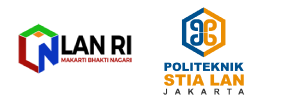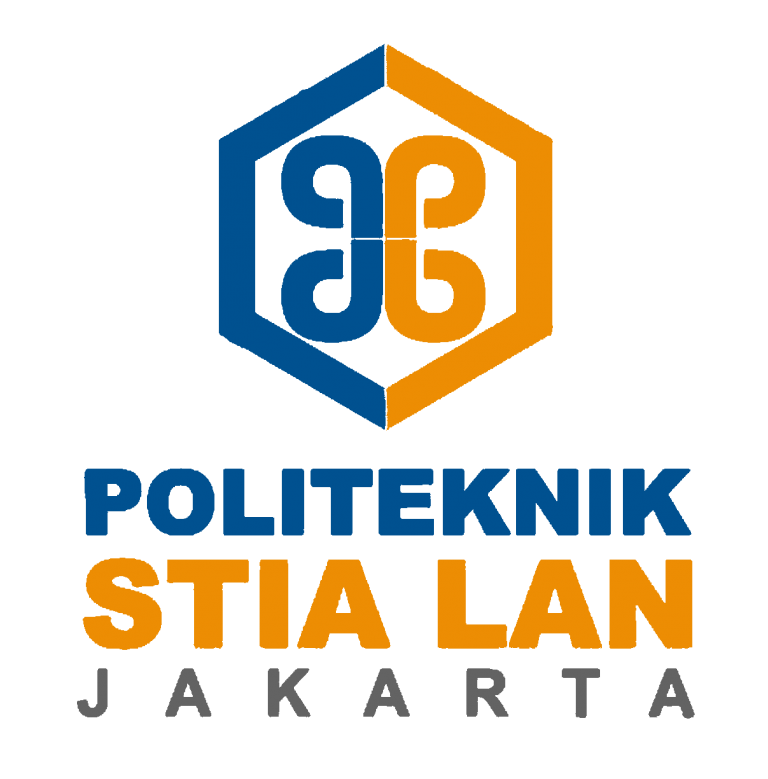VISION
Becoming an Excellent Vocational Study Program in the Field of Public Sector Business Administration in 2024
MISSIONS
- Organizing an applied based education and teaching in the field of Public Sector Business Administration;
- Conducting applied research and scientific publications in the field of Public Sector Business Administration;
- Developing professional community service activities in the field of Public Sector Business Administration;
- Enhancing Public Sector Business Administration cooperation at the local and regional levels
CURRICULUM
Subjects/courses in the Public Sector Business Administration Study Program consist of General Compulsory Subjects (MKWU), Institutional Subjects, Core Subjects, and Crossed-Study Program Subjects, with a total of 144 credits. Subjects are distributed in packages of 7 (seven) semesters. The distribution of subjects per semester is as follows:




LEARNING OUTCOMES
Character
- Interact and communicate effectively, both scientifically and practically;
- Upholding morality and piety towards God;
- Internalizing academic values, norms, and ethics;
- Performing role as citizens whose dignity and pride for the country, upholding nationalism and a sense of responsibility to the state and nation;
- Respecting the diversity of cultures, perspectives, religions, and beliefs, as well as the original opinions or findings of others;
- Contributing to improving the quality of life in society, nation, state, and the advancement of civilization on a value basis of Pancasila;
- Developing the ability to cooperate and have a social concern as well as empathy for community and environment;
- Obeying the law and discipline as citizens;
- Internalizing the spirit of independence, struggle, and entrepreneurship;
- Demonstrating an attitude of work responsibility in the field of expertise independently;
- Internalizing professionalism and integrity.
Cognitive Domain
- Mastering general theoretical concepts of political science and social theory;
- Mastering theoretical concepts of administration, development, organization, bureaucracy, public policy, public services, organizational behavior, state finances, administrative reform, public governance, archive, and asset management;
- Mastering macroeconomic principles, state administrative law, risk management, and public administration ethics;
- Mastering qualitative and quantitative research methods including survey methods, field research, case studies, document studies, also specified and technical research of policy, development administration, archive, and asset management;
- Mastering the principles and techniques of persuasive communication, both oral and written.
General Skill
- Applying logical, critical, systematic, and innovative thinking in the context of science & technology development and implementation of humanities values in accordance with a certain field of expertise;
- Ability to demonstrate an independent, quality, and measurable performance;
- Assessing the implications of science & technology development and implementation on humanities values in accordance with a certain field of expertise and the basis of scientific principles, procedures, and ethics to produce solutions or ideas;
- Arranging scientific research in the form of an undergraduate thesis or final project report;
- Ability to formulate decisions appropriately in the context of problem-solving in accordance with a certain field of expertise, based on the results of analysis of information and data;
- Ability to maintain and develop networks with mentors, colleagues, and peers both at internal and external institutions;
- Ability to perform responsibility in leading teamwork; supervise and evaluate the completion of work assigned to workers under their responsibility;
- Ability to carry out self-evaluation process of the work group under their responsibility, and able to manage learning independently;
- Ability to manage data documentation, storing, securing, and recovering to ensure validity and prevent plagiarism.
Specific Skill
- Ability to manage recruitment, develop organizational structures, arrange job descriptions for each personnel, design work procedures for each task, and supervise employee performance;
- Ability to compile production plans, and work plans in the production room, and carry out supervision of the production process;
- Ability to build relationships with customers;
- Ability to identify problems and needs assessment of MSME Assistance;
- Ability to design MSME assistance plans, carry out face-to-face training, carry out assistance for the implementation of basic management of SME, and arrange an assessment report relates to the results of MSME assistance;
- Ability to carry out business planning assistance, manage access to MSME product markets through online sites, also manage access to business financing.
- Ability to analyze and evaluate public policies using principles, quantitative methods (including cost-benefit analysis, analytical hierarchy process), and qualitative methods (including participatory impact analysis, case studies) in the entire policy cycle (formulation, implementation, and evaluation);
- Ability to identify and analyze structural business problems using systematic and scientific methods;
- Ability to identify and analyze Corporate Social Responsibility (CSR) concepts and practices including the ethics and impacts;
- Ability to create and manage innovation, establishing new business entities with high growth potential based on local potential and intelligence;
- Ability to identify, evaluate various risks and opportunities to run a business in the context of the global environment, and propose responsible alternatives;
- Ability to identify and responsibly communicate the impact of technology on conventional business and business of the digital age (e-commerce);
- Ability to examine the interrelationship of diverse business models with local and social environmental aspects.
GRADUATE PROFILES & PROFESSIONAL CERTIFICATION
- Public Sector Entrepreneurship Developer – a professional with abilities to perform business analysis, business consultation, and assistance. The following are competence units of a professional public sector entrepreneurship developer as regulated in the Decision of Minister of Labor and Transmigration No. 53 of 2014 on Industrial Entrepreneurship Level 5:
- Ability to manage recruitment, develop organizational structures, arrange job descriptions for each personnel, design work procedures for each task, and supervise employee performance;
- Ability to compile production plans, work plans in the production room, and carry out supervision of the production process;
- Ability to build relationships with customers.
- Junior Assistant for Micro and Small Medium Entreprises (MSME)/Junior Assistant Consultant for MSME – a professional with abilities to perform competencies in assisting according to the Regulation of Minister of Cooperative and SME No. 04 of 2018 on Assistant Consultant Level 4, as such:
- Ability to identify problems and needs assessment of MSME Assistance;
- Ability to design MSME assistance plans, carry out face-to-face training, carry out assistance for the implementation of basic management of SME, and arrange an assessment report relates to the results of MSME assistance;
- Ability to carry out business planning assistance, manage access to MSMEs product markets through online sites, also manage access to business financing.
EXCELLENT WORK PROGRAM
- Applied-based curriculum development;
- Performing education and training for lecturers and students;
- Enhancing the quality of blended learning (online-offline learning);
- Performing a professional certification;
- Delivering academic and non-academic services;
- Hosting/co-hosting seminars and conferences (national/international).



